Hi, it’s Alexandre from Eurazeo (ex. Idinvest). I’m investing in seed & series A consumer and consumer enablers startups all over Europe. Overlooked is a weekly newsletter about venture capital and underrated consumer trends. Today, I’m sharing the most insightful tech news of October.
For 2021, I wanted to pick one piece of news per day and write a short comment about it. I want to talk about something that strikes me. Something that happened in the tech ecosystem. Here is the issue for October!
Please note that the date picked for each event is not always the exact event date but the one at which I decided to write about the event.
Friday, Oct. 1st: French gaming giant Voodoo acquired Beach Bum for $250-300m. Voodoo raised $300m at a $2bn valuation during the summer with Groupe Bruxelles Lambert - probably to fund this acquisition. Beach Bum is a mobile gaming studio specialized in board and card games which have deeper engagement than hypercasual games and which monetizes through in-app-purchases (vs. advertising). The acquisition is logical move in Voodoo's diversification strategy away from the hyper-casual game segment. If you want to learn more about Voodoo, you can read this deep-dive. - Les Echos, Techcrunch
Saturday, Oct. 2nd: Rui Ma wrote a guest post for a16z on the explosive growth of Chinese tech companies. - a16z
"The most interesting thing about Chinese tech startups isn’t necessarily how innovative they are, but how willing they are to shake up their best, most core assets and disrupt themselves."
In the past 5y, China has reached $171bn in total GMV which represents 10% of the total e-commerce market. Live-streaming took off in China because e-commerce giants disrupted their existing model and went all-in on live-streaming. For instance, Alibaba gave prime digital real estate to live-streaming on its app, made live commerce a core component of its Singles' Day and massively trained creators to become live-streamers.
Chinese companies are following this aggressive strategy because the Chinese market is too competitive for them to be able to rest on their laurels and it's harder for them to build worldwide giants.
Sunday, Oct. 3rd: Roblox organised its annual developer conference called The Roblox Developer Conference. - Roblox
Roblox has now 43m DAUs and its engagement figures are sticking beyond the covid crisis. Another change is that now more than 50% of its users are more than 13 years old. In 2021, Roblox plans to payout $500m to its developers community.
Roblox has put a lot of emphasis on being at the cornerstone of the metaverse emergence. At its core, Roblox has built a complex cross-experience avatar system. Roblox is working to enable any third developer and gamer to create his own items.
Roblox has reached significant milestones such as attracting developers from all over the world (with no country having more than 50% of the developers), having 1m gamers concurrently on Roblox, generating more than $50m in revenues for a single developer etc.
Monday, Oct. 4th: Five Seasons raised a €180m fund II (vs. €77m fund I). It will back European food startups at series A and series B. This new fund has already invested in 4 companies: Vly (plant based milk), Her1 (wellness supplements), Barkyn (subscription based dog food) and The Nu Company (healthy snack maker). - Tech.eu, Techcrunch
Tuesday, Oct. 5th: Eight Roads raised a $450m fund IV. It will back 15-20 European and Israeli startups. It will invest $5-50m initial tickets in sectors like consumer, fintech, SaaS and healthcare. Eight Roads has invested into successful companies like AppsFlyers, Cazoo, Fireblocks, Made, Spendesk and Neo4j. It's a mono-LP fund backed by a huge asset manager called Fidelity. Tech.eu, Sifted
Wednesday, Oct. 6th: Podcastle raised a $7m series A round co-led by P9 and RTP Global. It's an all-in-one platform for podcasters to manage the full lifecycle from recording to production and publishing. It has 150k users on its platform. - Techcrunch
Thursday, Oct. 7th: Cord raised a $17.5m series A led by Index with the participation of NFX and Stride for its API to add collaboration features to any app. Instead of spending years making your product collaborative, you will plug the Cord's API to integrate collaborative features such as real time chat, annotations, integrations, screen recordings, audio messages, video chat etc. - Techcrunch
Friday, Oct. 8th: Blank Street raised a $25m series A led by General Catalyst and Tiger. It's a network of coffee shops powered by mobile takeout windows. You turn the unit economics of running a coffee shop upside down with a model in which you don't have real estate costs and you can change your location whenever you want. Blank Street operates in 14 locations in New York. It will use the funding (i) to expand in new locations (targeting 3-5 locations per neighborhoods), (ii) to double down in tech development (consumer app) and (iii) to launch a wholesale business to let third party brands sell into their locations. - Techcrunch

Saturday, Oct. 9th: Damir Becirovic at Index interviewed Bala Chandrasekaran who is an investor at Meesho to understand the ropes behind the Indian ecommerce giant which was recently valued at $4.9bn. - Daily Consumer
"Meesho is an Indian social commerce company that gained popularity as a platform enabling small businesses and individuals to start online stores via social platforms (WhatsApp, Facebook, Instagram). Since its founding, Meesho has evolved into the go-to e-commerce destination for T3/T4 cities, in which they specialize in unbranded/unorganized products. Over 70% of their sales are coming from now end-customers buying directly on the app."
"As of last year, Meesho stopped charging commissions on products sold through the Meesho platform. This is part of what made them extremely supplier friendly and why so many suppliers exclusively offer their products on Meesho."
"When Meesho started, their wedge into the social commerce space was empowering resellers who historically couldn't build their businesses due to the upfront capital requirements. With Meesho, resellers could start businesses instantaneously and have the necessary toolbox (i.e. payments, logistics, marketing, etc) to build successful businesses while employing an asset-light inventory model by relying on Meesho's thoroughly curated supplier network."
Sunday, Oct. 10th: I read an interview from Pol Fananas (investor at Kibo Ventures) with Delian Asparouhov who is principal at Founders Fund as well as founder of Varda Space. - Views
Delian dropped out from MIT in 2013 when he was awarded the Thiel Fellowship which gives $100k to young people to build businesses instead of following courses at school.
He started a first business called Nightingale which was an healthcare company providing personalized treatments to individuals with autism. He did that for 3.5 years, went to YC and sold the company to a customer because it was not taking off.
He has been in venture for 4 years at Khosla and Founders Fund. He backs seed/series A entrepreneurs building engineering based companies (satellites, construction, robotics etc.).
He recently incubated Varda within Founders Fund. It builds factories in space to manufacture products in zero gravity conditions. It raised $51m from investors like Khosla, Founders Fund and Lux Capital.
"The answer is that there is no one single ideal founder profile, it really depends on the company. The question for me is more about “Why are you the Elon for this particular company? What is the problem that obsesses you in a differential way? Do you have the appropriate skills to tackle it? Can you navigate the major risks?” That being said, for sure there are common characteristics of great founders: resiliency, fortitude, creativity, having a special spark, etc but if you look at top founders they all look wildly different, there is not an ideal founder profile. As an investor what I am looking for is the secret that this person is discovering and nobody believes, almost a conspiracy theory that he obsessively wants to prove true. If it is something that everybody agrees with then I think it is less interesting because there is already a lot of people working on it and less likely that you will be unique and the best one."
Monday, Oct. 11th: Our portfolio company Homa (💙) raised a $50m series A led by Northzone with the participation of existing investors as well as with Singular, Spotify’s founder Daniel Ekas well as with FuboTV and King’s founders. Homa is reinventing mobile gaming, leveraging a proprietary end-to-end-tech platform to help game developers in their journey from ideation, development and scaling to monetization. The funding will be used to expand the team, strengthen Homa’s tech platform, to sign new IPs, to complete acquisitions, and to expand in new mobile game genres. If you want to learn more about Homa, I wrote a post on the announcement. - Techcrunch, Sifted
Tuesday, Oct. 12th: Our portfolio company Swile (💙) raised a $200m series D led by Softbank at a $1bn+ valuation (🦄). Swile is disrupting the meal voucher industry. In 4y, it reached a 13% market share in France. It recently expanded its product breadth to become a comprehensive employee wellbeing solution acquiring companies (Briq and Sweevana) and launching additional products (e.g. public transport subscription, employee survey or gift cards). Swile has also started its geographical expansion in Latam. Go check Swile’s landing page. It’s amazing and powered by another portfolio company called Prismic! - Techcrunch
Wednesday, Oct. 13th: With Antoine, we were thrilled to announce that Eurazeo led Jow's $20m series A (💙) to reinvent your weekly grocery shopping experience! Jow is a unique company with a global potential - two rare characteristics in European grocery startups. - Sifted
1/ Unique because Jow dared to create its own category with shoppable recipes when most European startups in grocery are replicating successful models from other geographies.
2/ With a global potential because Jow adopted an asset light model with its front end that can be quickly deployed on top of any retailer in the world.
Jow is on track to win the French market with 20m meals prepared since inception and a forecasted €150m GMV for 2021. Now, it's time to conquer the US!
Thursday, Oct. 14th: Turner Novak (solo GP at Banana Capital) wrote a great post on its portfolio company Jokr a player in the ultra-fast grocery delivery war. - Turner Novak
Jokr was not the first mover in the space starting only in April 2021 - a long time after category creators GoPuff and Getir but also months after the launch of European contenders like Gorillas or Flink. In 6 months, Jokr has expanded in 7 countries and its annualized revenue run rate has surpassed $100m.
Jokr's founder Ralf Wenzel has an inspiring personal story. He was born and grew up in communist countries between Berlin East and Cuba. He studied at the University of Havana and started its career at Mercedes. After that, he moved to the startup world either as employee or founder of many businesses. In 2013, he moved to Singapore to launch and scale Rocket-backed Foodpanda in South East Asia. Ralf eventually became Foodpanda's global CEO. In 2016, Foodpanada merged with Delivery Hero and the combined group went public in Jun. 2017. In 2019, Ralf was recruited by Softbank as managing partner to lead its Latin American operations with the mission to launch 50 businesses in 5 years and to invest $5bn in the region. With covid, it did not go according to the plan and Ralf had to focus most of its time on Softbank portfolio companies which were struggling like WeWork and Oyo. During covid, he saw the acceleration of ecommerce and decided to launch Jokr to become the go to place to order everything online - starting with groceries.
Instant Commerce is the logical next step to increase grocery online penetration after brick & mortar stores trying to go online (Kroger, Walmart) and marketplaces (Instacart, Doordash).
Jokr differentiates from both brick & mortar stores and online marketplaces with its vertically integrated model. You can provide a great customer experience with speed and affordable products while preserving good unit economics. To differentiate against other instant commerce players, Jokr will expand beyond grocery to become an everyday store and will invest massively in tech/data-science to improve operations while developing a super accurate profile of its customers.
Friday, Oct. 15th: Accel released its Euroscape's 2021 edition. - Philippe Botteri, Accel
Accel highlighted 6 emerging trends for 2022: (i) more automation, (ii) leveraging AI to change the content creation paradigm, (iii) security for cloud infrastructure and applications, (iv) API-ification of fintech infrastructure, (v) crypto and DeFi, (vi) infrastructure for the anywhere workforce.
Accel argued that Europe and Israel are on path to catch-up with the US in its capacity to generate worldwide SaaS leaders with two key milestones achieved in 2021: (i) UiPath (from Romania) being the largest cloud IPO in 2021 with a $36bn market cap and (ii) Hopin (17m, UK) and Wiz (14m, Israel) being the fastest ever companies to reach a unicorn status. Moreover, in the past 2y, the number of cloud unicorns has doubled in Europe from 44 companies in 2020 to 81 companies in 2021.
Accel refreshed its Euroscape mapping with companies generating more than $1m in revenues and valued at less than $1bn.
Saturday, Oct. 16th: Angular Ventures raised a $80m fund II to back seed and deep tech startups in Europe and Israel. It invests tickets between $250k and $3m. Angular is adding a new partner on board called David Peterson who was previously head of growth at Airtable. - Tech.eu
Sunday, Oct. 17th: Ghislain de Buchet from Clipperton published a paper on the rise of livestreaming in ecommerce. - Ghislain de Buchet
In 2020, livestreaming ecommerce generated $144bn in sales compared to $65bn in 2019 (2.2x growth).
Livestreaming combines 4 main characteristics that are appealing to younger generations: (i) video & mobile first, (ii) community driven, (iii) authentic and (iv) playful and creative.
In the West, "3 main types of players have emerged in addition to legacy social media. On one hand, there are new integrated platforms dedicated to livestreaming purchasing which are either 1) generalist or 2) verticalized; on the other hand, some companies focus on providing 3) white-label tools and enablers."
Monday, Oct. 18th: Mindbody acquired ClassPass for $500m in an all-stock deal. With, ClassPass, in exchange for a monthly subscription, you get credits that can be used to attend fitness classes, you can access a very diverse catalogue in partners gyms without having to pay a membership to these various gyms. It was founded in 2012, was previously valued at $1bn in Jan. 2020 but was hit hard by the covid crisis. For gyms, it's a great way to sell their inventory when classes are not full. Mindbody is a vertical SaaS for beauty and fitness professionals as well as a booking platform. ClassPass is a great addition to its platform because it's an additional service to offer to its base of professionals and it's another way to get in touch directly with end consumers. - Techcrunch, Mindbody
Tuesday, Oct. 19th: Primer raised a $50m series B at a $425m valuation led by Iconiq with the participation of existing investors Accel, Balderton, Seedcamp and Speedinvest. It's a payment orchestration platform. It has a drag and drop interface to build payment flows and connect to more than 50 providers (payment providers, fraud screening, sales tax computation, etc.). Primer will use the funding to accelerate its commercial expansion while doubling down on product development (more integrations, more services for merchants). - Techcrunch
Wednesday, Oct. 20th: Gorillas raised a $950m series C at a $2.1bn premoney valuation led by Delivery Hero ($235m investment for a 8% stake into the company) with the participation of existing investors Tencent, Coatue and DST. It's an instant delivery grocery startup founded in June 2020. It has 180 warehouses in 9 different countries and over 55 cities. Gorillas has reached $300m in revenue run rate. It will use the funding to reinforce its presence in its existing markets. - Techcrunch
Thursday, Oct. 21st: AirGarage raised a $12.5m round led by a16z with the participation of existing investors Founders Fund, Floodgate and Abstract Ventures. It offers an all-in-one SaaS (payment processing, operations, marketing, online listing, etc.) for parking lot owners to manage and modernize their operations. It grew 12x YoY and is now working with 200 locations. It will use the funding to increase parking lot utilisation rate by making the space accessible for other use cases like cloud kitchens, micro-warehouses or autonomous vehicles. - Techcrunch, AirGarage
Friday, Oct. 22nd: Rippling raised a $250m series C led by Sequoia at a $6.5bn valuation. It started as a unique record system for employment data, populating all the tools used in a given organization. Rippling is now leveraging this record system to rebundle enterprise software by building a suite of apps to manage your organization. - Rippling, Sequoia, Techcrunch
Saturday, Oct. 23rd: The a16z team wrote a great post on the emergence of a software stack to help independent workers manage their business. - a16z
"Much has been written about the proliferation of vertical software tools that help firms run their businesses, but the next generation of great companies will provide integrated, vertical software for individuals going solo."
"They need the tools to launch, sell, manage, and market their craft so they can focus on doing the job that matters. [...] Solo workers venturing out on their own need to feel like they can replace the support of a company model. Traditionally, the firm brings three things to support the core craft or product: operational support, demand and networks."
a16z believes that "business-in-a-box" software will emerge for each independent profession providing all the services needed to run a business.
For each vertical, you should evaluate market size as well as how much value a verticalized tool can bring. These businesses will make money through a SaaS fee, a take rate on payments, a take on lead generation and through a subscription to access a network and fintech products.
Sunday, Oct. 24th: Michael Eisenberg at Aleph wrote a paper on why founders should look for investors treating their investments as relationships and not transactions with a great checklist for what entrepreneurs should evaluate in a future investor. - Aleph
"Bring insights and relationships that can help accelerate product-market-fit? Provide introductions to early customers?
Have the relationships and network to help recruit key product builders (scarce resource) and early management?
Provide access to good ongoing capital — either through relationships, proprietary insights or networks?
Take time to understand the long-term strategy and provide unique insights or breakthrough ideas?
Question founder assumptions respectfully but firmly?
Have the ability to spend real time working with a founder to accelerate their learning?"
Monday, Oct. 25th: Hera (💙) raised a $1.7m seed round by Eurazeo with the participation of top angel investors such as Alexis Bonillo (Zenly), Thibaud Elzière (eFounders) and Kyle Parrish (Figma). Hera is building the next-generation calendar application adapted for remote and collaboration. It will manage the full meeting lifecycle from scheduling to preparation, adding context, attending the meeting and doing follow-ups. - Techcrunch
Tuesday, Oct. 26th: Sequoia is turning the venture capital model upside down. "Patience and long-term partnerships generate exceptional results. For Sequoia, the 10-year fund cycle has become obsolete." It will form a single and open-ended fund to hold all its European and American investments (across stages and even when companies are public). LPs will be able to invest and redeem their position every year. Sequoia's employees will invest 5% of the Sequoia Fund, will earn a 1% management fee and a 30% carried interest. Sequoia will also become a registered investment advisor to remove constraints to invest in both cryptocurrencies and secondaries. With this new structure, Sequoia will be better aligned with its founders and will be able to capture higher value creation by holding public shares of their investments post IPOs. - Axios, Protocol, Sequoia, Techcrunch
Wednesday, Oct. 27th: Hedosophia launched a scout program involving 20 top founders and executives in companies like ComplyAdvantage, Qonto, N26, Glovo and Revolut. Scouts will write £20-30k cheques to give Hedosophia a first look in companies that the fund can back later on. Many scout programs have been launched in the past 2-3y in Europe from funds like Atomico, Backed, Blossom, Ada and Sequoia. - Sifted
Thursday, Oct. 28th: Hinge raised a $600m series E at a $6.2bn valuation (vs. $3bn for the previous round announced in Jan. 2021) co-led by Tiger and Coatue (inc. $200m in secondary with Alkeon and Whale Rock). It's a digital therapeutics solution to treat chronic musculoskeletal conditions like back and joint pain. Hinge has doubled its customer base, has now 575 enterprise customers and is used in 90% of health plans including a digital MSK solution. - Techcrunch, Hinge, Fierce
Friday, Oct. 29th: Cover raised a $60m series B led by Gigafund with the participation of Valor Equity Partners and Founders Fund. Its vision is "to build homes like cars and use software to drive mass customization". Cover is a vertically integrated modular home builder that aims at being cheaper, quicker and a more sustainable alternative to build your home. Cover uses software to streamline the home building process (design, engineering, legal requirements) and a plant to manufacture in-house key elements like wall, floor and roof panels. Cover will use the funding to accelerate mass production and to increase the size of the team. - Techcrunch, Alexis Rivas, Jeff Burke, Cover
Saturday, Oct. 30th: Allbirds released its S1. It's a shoes D2C brand founded in 2015. It could raise up to $180m at a $2.2bn valuation. In 2019, it expanded beyond shoes adding progressively other fashion categories like socks, shirts and sweaters. Allbirds sold products to 4m customers. It generated $219m in revenues in 2020 (with a 52% gross profit) and lost $26m in 2020. - Allbirds
Sunday, Oct. 31st: You know that I'm obsessed with companies that are able to expand their total addressable market. Bessemer wrote a paper digging into six strategies to drive market expansion including launching a partner ecosystem, adding features to your product suite, extracting value from the data you collect as system of record, expanding into adjacent verticals, becoming an end-to-end solution and addressing other use cases. - Bessemer
Toast (vertical SaaS for restaurants) has been able to expand its product suite to become an all-in-one solution and to cross-sell additional features (e.g. financial services, back office, digital guest engagement, contactless guest experience) to its existing customer base.
ServiceTitan (vertical SaaS for home & commercial service industry) expanded into adjacent verticals through a mix of acquisitions and product adjustments. It started on three verticals: residential heating and cooling, electrical and plumbing. With its strategy it expanded into water treatment, landscaping, pest control, and franchise brands. ServiceTitan is now worth $8.3bn and has passed the $250m ARR mark.
Thanks to Julia for the feedback! 🦒 Thanks for reading! See you next week for another issue! 👋





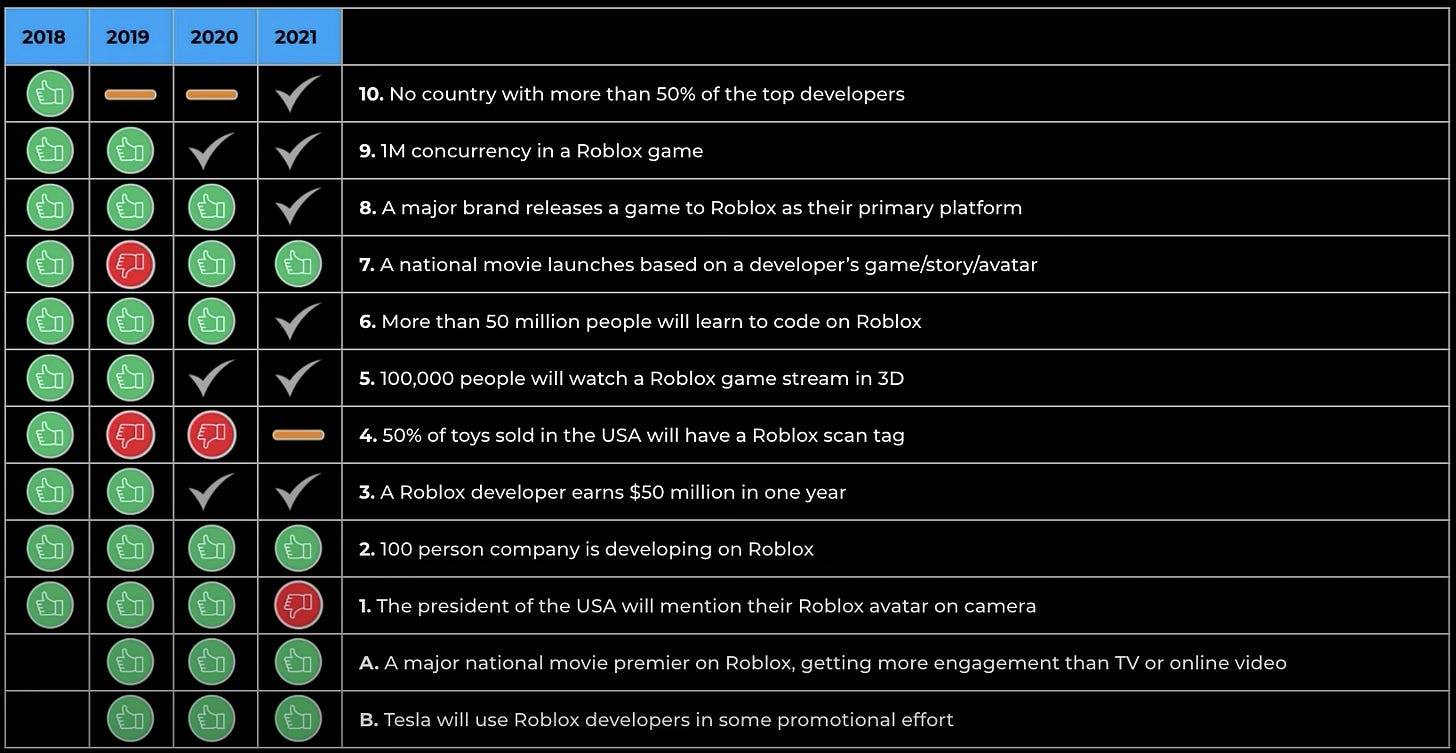




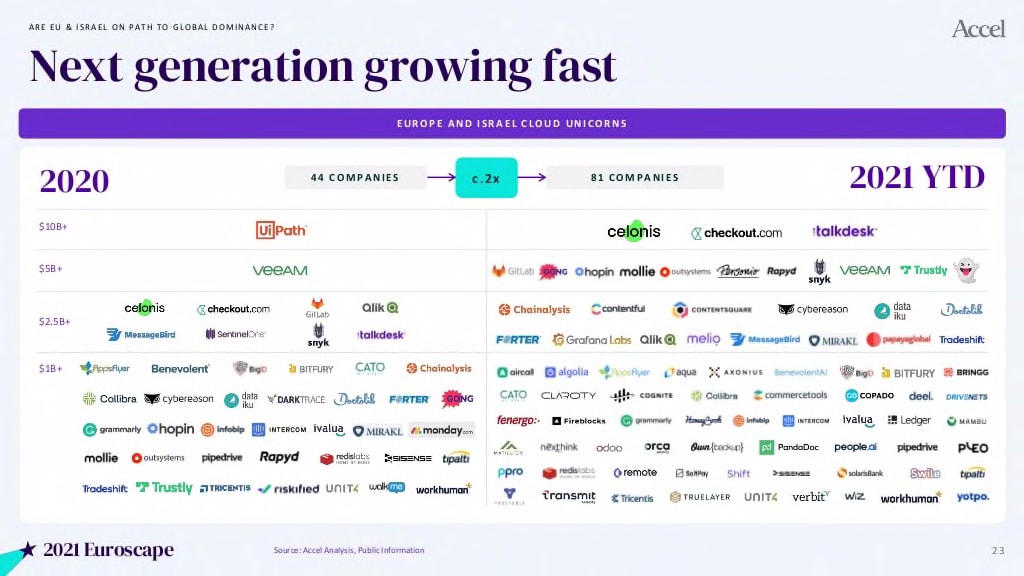
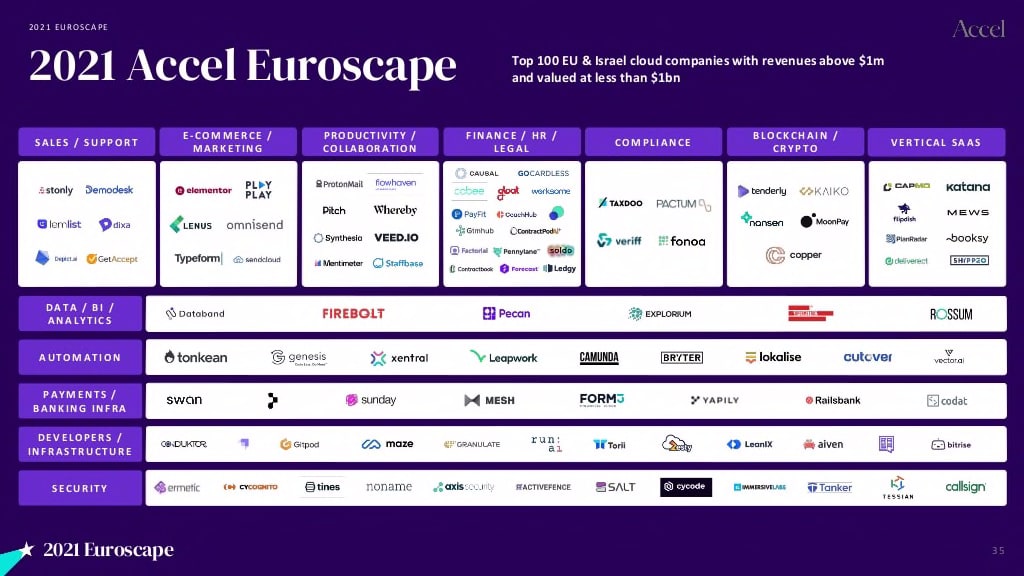

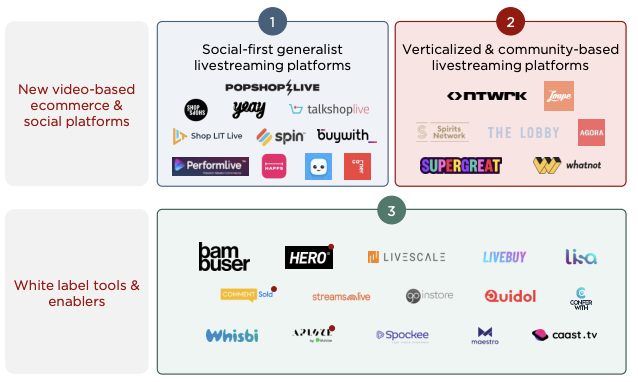
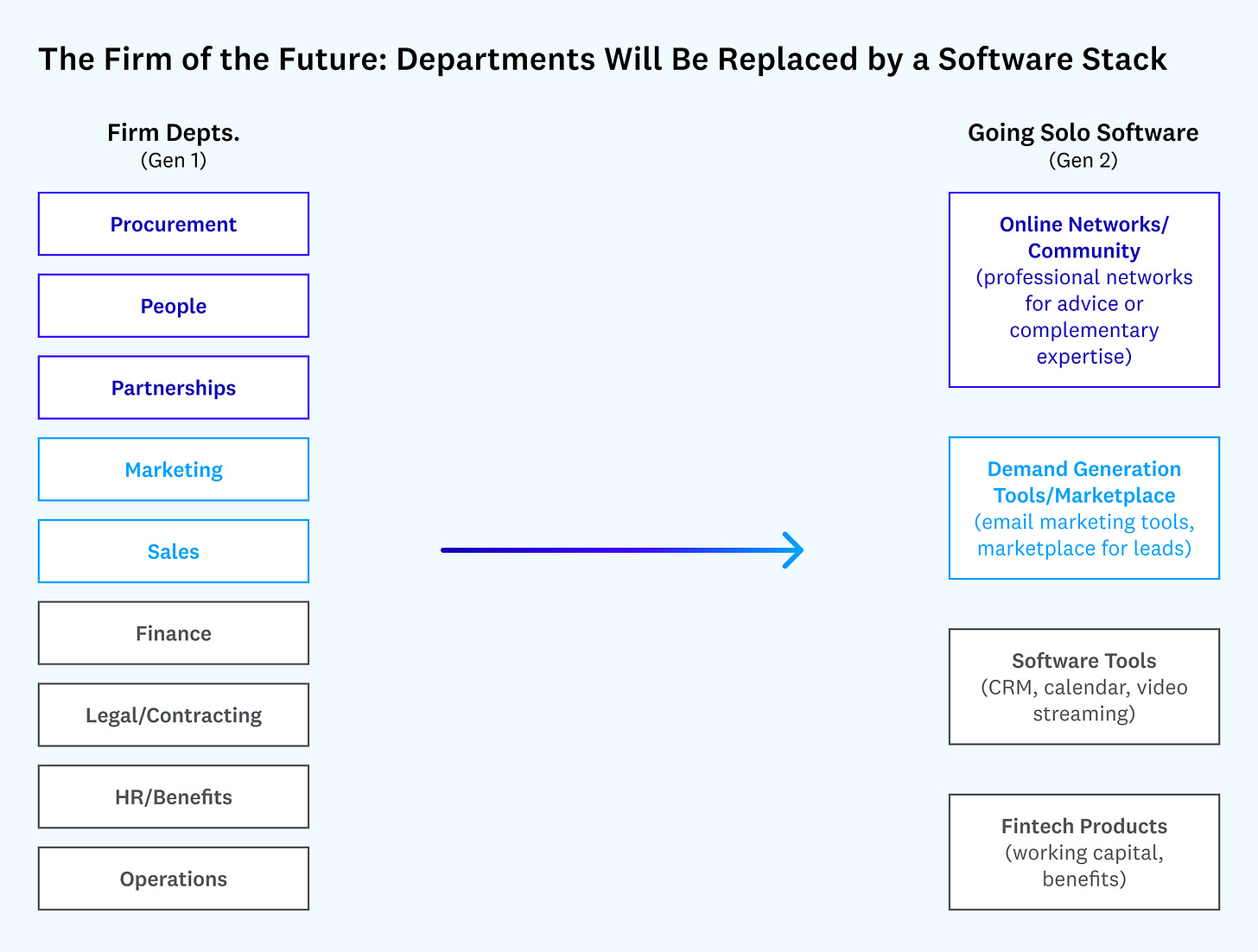
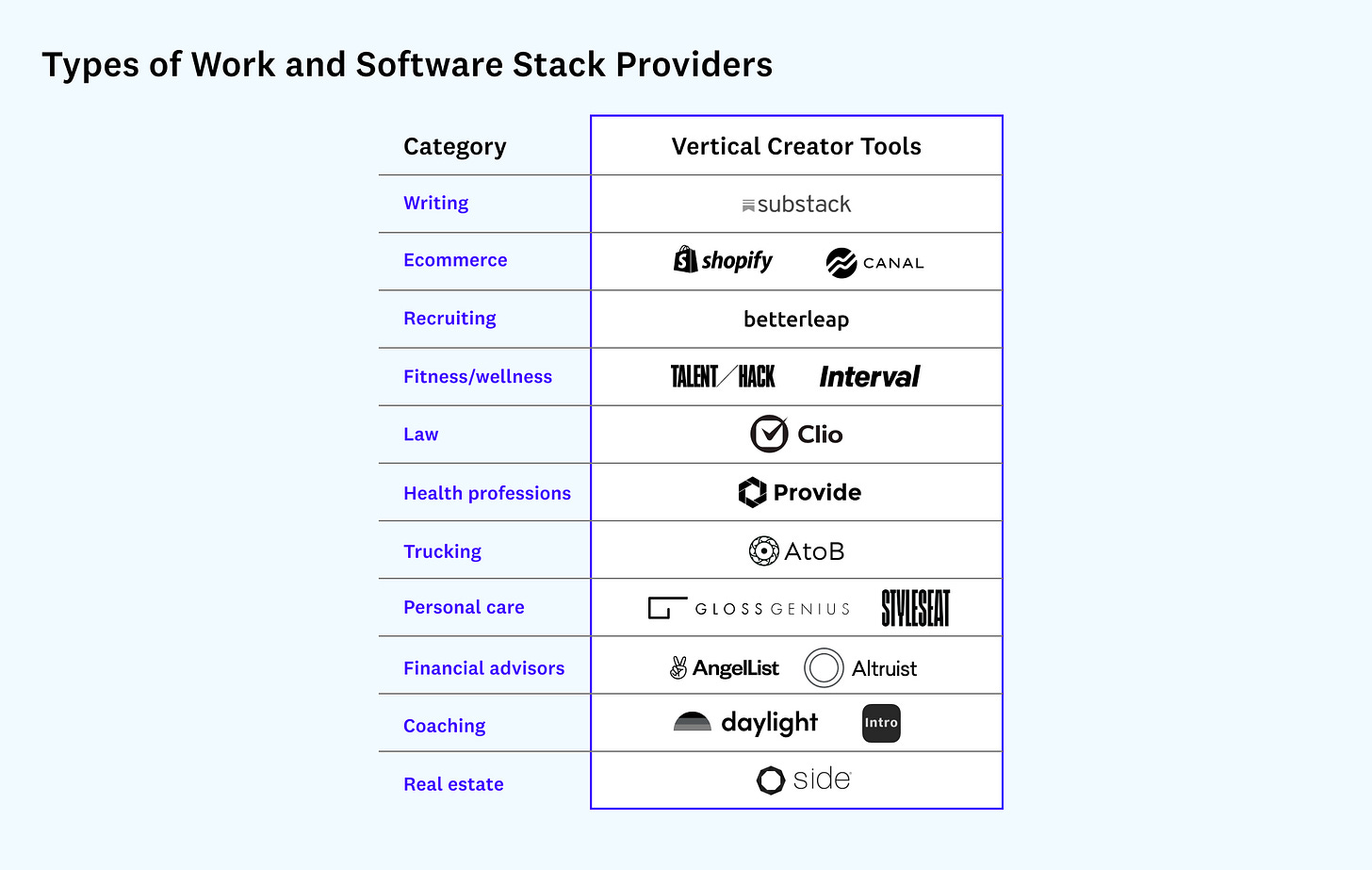


Great new format Alex, regarding the daily activity reporting. Super insightful, and nice to catch those articles that 'slip through the net'! Thanks 🙌